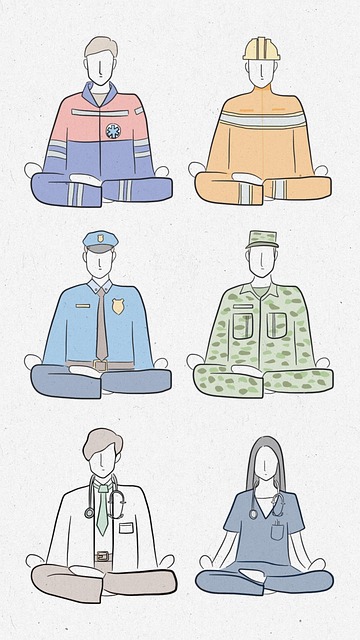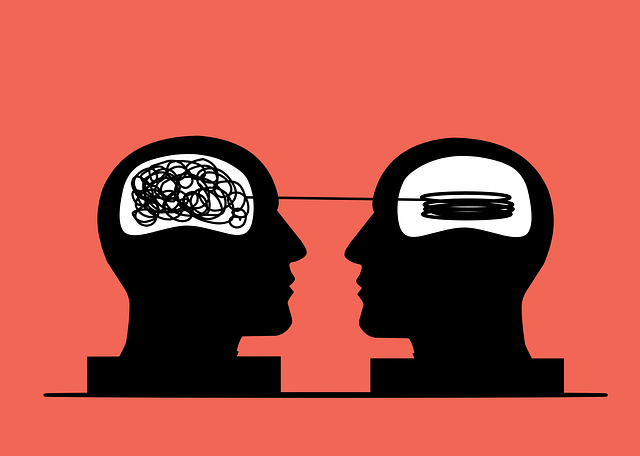Aurora Veterans Therapy offers specialized support for military personnel struggling with substance abuse, leveraging evidence-based practices like CBT to address unique challenges like PTSD and trauma. Their holistic approach includes individual counseling, group therapy, skills training, and family education, focusing on stress reduction, self-care routines, and relapse prevention planning. By creating a safe space and empowering clients with tools for emotional regulation and healthy coping mechanisms, Aurora Veterans Therapy facilitates long-term sobriety and improved mental health.
Substance abuse among veterans poses significant risks, but comprehensive risk reduction strategies can lead to successful recovery. This article explores crucial aspects of addressing this issue, focusing on the critical role of Aurora Veterans Therapy in mitigating harm. We delve into understanding the unique challenges faced by veterans, examining evidence-based approaches for behavior modification and the importance of creating supportive environments. Additionally, we discuss ongoing care and relapse prevention planning, highlighting effective strategies to enhance long-term recovery.
- Understanding Substance Abuse and Its Impact on Veterans
- The Role of Aurora Veterans Therapy in Risk Mitigation
- Creating a Supportive Environment for Recovery
- Evidence-Based Strategies for Behavior Modification
- Ongoing Care and Relapse Prevention Planning
Understanding Substance Abuse and Its Impact on Veterans

Substance abuse among veterans is a pressing issue that requires tailored understanding and support. Veterans often face unique challenges that can contribute to substance use disorders, such as trauma from combat experiences, post-traumatic stress disorder (PTSD), and difficulty adjusting to civilian life. The impact of these factors can be profound, leading to increased rates of addiction compared to the general population.
Aurora Veterans Therapy recognizes the complex nature of these issues and offers specialized services, including Trauma Support Services, to address the root causes of substance abuse. By incorporating Stress Reduction Methods and promoting Self-Care Routine Development for Better Mental Health, Aurora provides holistic care designed to empower veterans in their journey towards recovery. These strategies aim to equip them with tools to manage stress, cope with trauma, and cultivate a healthier, more resilient mindset.
The Role of Aurora Veterans Therapy in Risk Mitigation

Aurora Veterans Therapy plays a pivotal role in mitigating risks associated with substance abuse among veterans. This specialized form of therapy offers a safe and supportive environment tailored to address the unique challenges faced by military personnel upon their return home. Many veterans struggle with issues such as post-traumatic stress disorder (PTSD), depression, and anxiety, which can significantly increase the risk of substance misuse. Aurora Veterans Therapy employs evidence-based practices to help individuals process traumatic experiences, develop healthy coping mechanisms, and build resilience against the allure of drugs or alcohol.
Through individual counseling sessions, group therapy, and skills training workshops, Aurora Veterans Therapy equips veterans with effective conflict resolution techniques to manage anger and stress. Additionally, it fosters Mental Illness Stigma Reduction Efforts by promoting understanding and empathy, allowing veterans to openly discuss their struggles without fear of judgment. By addressing the underlying causes of substance abuse and providing comprehensive support, Aurora Veterans Therapy empowers veterans to break free from destructive patterns and embrace a healthier, more fulfilling life.
Creating a Supportive Environment for Recovery

Creating a supportive environment is paramount for individuals on their journey to recovery from substance abuse. At Aurora Veterans Therapy, we understand that healing occurs when clients feel safe, understood, and empowered. This involves fostering a community that promotes emotional regulation and mood management techniques, enabling individuals to develop healthy coping mechanisms. By integrating evidence-based practices, our therapy sessions help participants improve self-esteem, which is crucial for maintaining long-term sobriety.
A supportive environment goes beyond the walls of a treatment center; it extends to family and social networks. Encouraging open communication, education on substance abuse dynamics, and fostering healthy relationships are key components in reducing risk factors. At Aurora Veterans Therapy, we believe that by equipping individuals with the right tools and a strong support system, they are better equipped to navigate challenges and embrace a life of recovery.
Evidence-Based Strategies for Behavior Modification

Substance abuse treatment often involves behavior modification strategies that are backed by scientific evidence. At Aurora Veterans Therapy, our approach emphasizes these evidence-based methods to help individuals achieve lasting recovery. One such strategy is cognitive-behavioral therapy (CBT), which focuses on identifying and changing negative thought patterns and behaviors contributing to substance misuse. CBT equips clients with coping mechanisms to manage cravings and triggers effectively.
Additionally, empathy building strategies play a crucial role in fostering mental wellness and anxiety relief. Through active listening and understanding, therapists create a safe space for individuals to process their emotions and experiences without judgment. This supportive environment encourages vulnerability, allowing for deeper exploration of underlying issues that may be fueling substance abuse. By combining these evidence-based techniques with personalized care, Aurora Veterans Therapy offers transformative journeys towards recovery and improved quality of life.
Ongoing Care and Relapse Prevention Planning

Ongoing care and relapse prevention planning are essential components of substance abuse recovery at Aurora Veterans Therapy. After completing a structured treatment program, individuals often require ongoing support to maintain their sobriety. This phase involves regular therapy sessions tailored to address specific triggers and challenges that may arise in daily life. Through individual or group counseling, clients develop coping strategies and enhance emotional regulation skills, enabling them to manage stress and cravings effectively.
Relapse prevention planning is a proactive approach where mental health professionals work with individuals to identify high-risk situations and develop strategies to navigate them successfully. This includes building resilience by teaching healthy coping mechanisms and enhancing problem-solving abilities. By integrating risk management planning into their recovery journey, individuals gain the tools needed to recognize warning signs early on and implement effective interventions before a relapse occurs.
Substance abuse among veterans is a complex issue, but with comprehensive risk reduction strategies, recovery is achievable. By combining understanding and empathy with evidence-based practices, such as those offered by Aurora Veterans Therapy, we can create supportive environments that foster healing. Continuous care and relapse prevention planning are crucial components in ensuring long-term success. Through collaborative efforts, we can significantly mitigate risks and improve the lives of veterans struggling with substance abuse.









